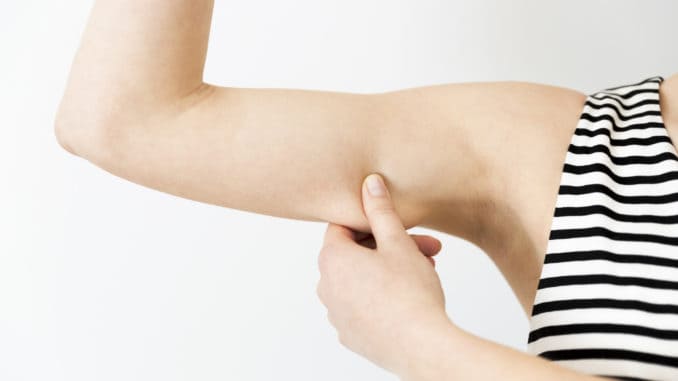
[cmamad id=”26106″ align=”center” tabid=”display-desktop” mobid=”display-desktop” stg=””]
Men who want less fat and more muscle need to know this…

—-Important Message From Our Sponsor—-
90% of men are suffering from “T-bleed” – here’s how to stop it
There’s a good chance you’ve got T-bleed too…
It kills a man’s sex drive, ruins his erections, and decimates his confidence.
It even lowers his life expectancy.
And even worse: It keeps women from sleeping with you.
Here’s how to stop the T-bleed and recover from low testosterone.
———-
What’s your HbA1c? And here’s why it matters…
Body fat generates inflammation.
Animal studies have shown that this fat-sourced inflammation can cause symptoms of type 2 diabetes.
The male hormone testosterone is often low in men with type 2 diabetes.
And testosterone plays a large role in body fat storage…
A recent study looked at the effect of testosterone on muscle mass and fat mass in men with type 2 diabetes.
The results show the critical importance of optimal testosterone levels in men with type 2 diabetes.

These researchers did their study at the University of Sheffield in the UK. The journal Endocrine Abstracts published the results.
Body composition refers to the ratio of muscle mass to fat mass…
And hormones have a huge influence over muscle mass and fat mass.
“Sex hormones are important determinant of body composition.”
Scientists know about the association between higher testosterone and lower risk of obesity.
“There is a significant negative correlation between testosterone and obesity.”
We also know about the association between higher testosterone and more muscle.
“There is a significant positive correlation between testosterone and muscle mass. Testosterone increases muscle mass in men with low testosterone.”
This study set out to see if these observations held true in men with type 2 diabetes.
“We aimed to assess the impact of total testosterone on body composition in men with type 2 diabetes.”
The study recruited 200 men (41 to 83 years old) with type 2 diabetes.
“This was a cross-sectional study involving men with type 2 diabetes.”
It looked at the effect of testosterone on body fat and fat-free mass (indicating muscle mass).
“The study assessed the impact of total testosterone levels on fat mass and fat-free mass.”
They assigned the men to two different categories – based on their total testosterone levels.
The men in the first group had testosterone levels that were lower than they should be.
Some of these men were taking testosterone – but their levels were still low.
The second group of men had good testosterone levels.
Some of them that group were supplementing testosterone and others had naturally high levels.
The average testosterone level of the second group was more than twice that of the first group. (8 vs 18.)
The researchers observed significant differences in body fat and fat-free mass between the high testosterone vs low testosterone groups.
“We found significant differences in body fat and fat-free mass between the groups”.
Diabetic men with high testosterone had more fat-free mass (more muscle).
“Total testosterone is positively correlated to fat-free mass.”
And diabetic men with higher testosterone had less body fat.
“Total testosterone is inversely correlated to fat mass.”
These findings show that optimal testosterone levels are important for men with type 2 diabetes.
Decreasing the amount of body fat with testosterone supplementation could actually improve diabetic symptoms.
Testosterone supplementation should be dosed based on blood tests – to get the blood levels into the right range.
“Testosterone should be replaced to the mid-normal range as per guidelines.”
The study also looked at HbA1c – a critical blood test for people with type 2 diabetes.
HbA1c gives an indicator of the average blood sugar readings over long periods.
[cmamad id=”26107″ align=”center” tabid=”display-desktop” mobid=”display-desktop” stg=””]
People with type 2 diabetes want lower HbA1c readings.
The study found that HbA1c is higher in people with more body fat and lower in people with more fat-free mass.
But proper testosterone supplementation could lower HbA1c.
“HbA1c is conversely correlated to fat-free mass and positively correlated to fat mass.”
In addition, proper sleep is absolutely critical for maintaining healthy levels of testosterone.
Stress management, good diet, supplements, and smart training can also help a lot.
For some people, testosterone supplementation is necessary.
But be careful. While too little testosterone can cause problems, too much from supplementation can cause other problems.
So testosterone supplementation should be overseen by a knowledgeable medical professional.
—-Important Message—-
It’s in your kitchen – eat this to double your testosterone…

Who knew that an ingredient hiding in your kitchen cupboards right now could double or even triple your natural testosterone?
It’s crazy but true… And it works by LOWERING estrogen, which RAISES testosterone.
This one kitchen ingredient STOPS the body from converting precious testosterone into harmful estrogen. Medically speaking, that makes it an aromatase inhibitor.
And, in men, more testosterone and less estrogen means more muscle mass, more energy, a super-charged libido, and better sexual and all-around performance.
And, what’s really great, this ingredient is safe for men… There is no risk of side effects (unlike the pills, patches, and procedures from Big Pharma)…
And you probably have it in your kitchen right now…
Here’s the one kitchen ingredient that allows any man to double his testosterone naturally at home.
———-

- The impact of testosterone level on body composition in men with type 2 diabetes (T2D)
https://www.endocrine-abstracts.org/ea/0059/ea0059p188
- Your Body Fat Percentage: What Does It Mean?
https://www.winchesterhospital.org/health-library/article?id=41373 - Determination of Body Composition
https://www.uml.edu/campusrecreation/staff/EP%20II%20Materials/BC%20Lab.pdf
